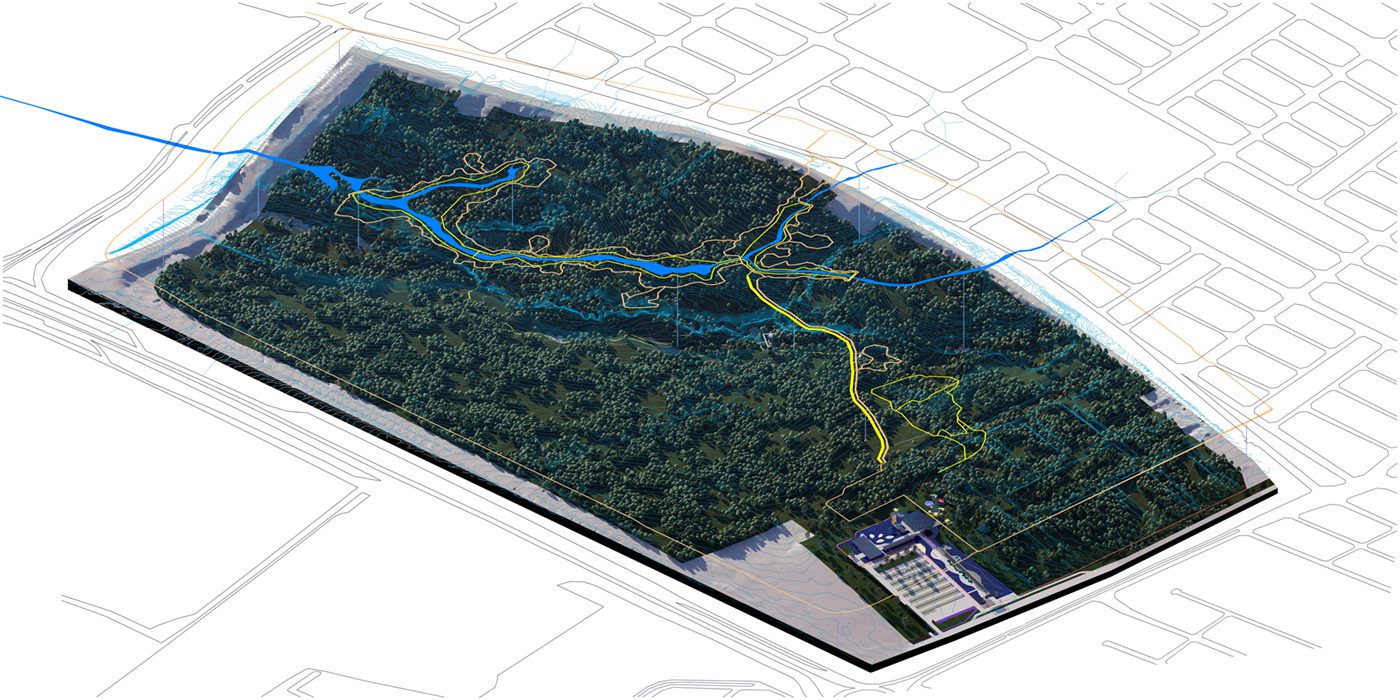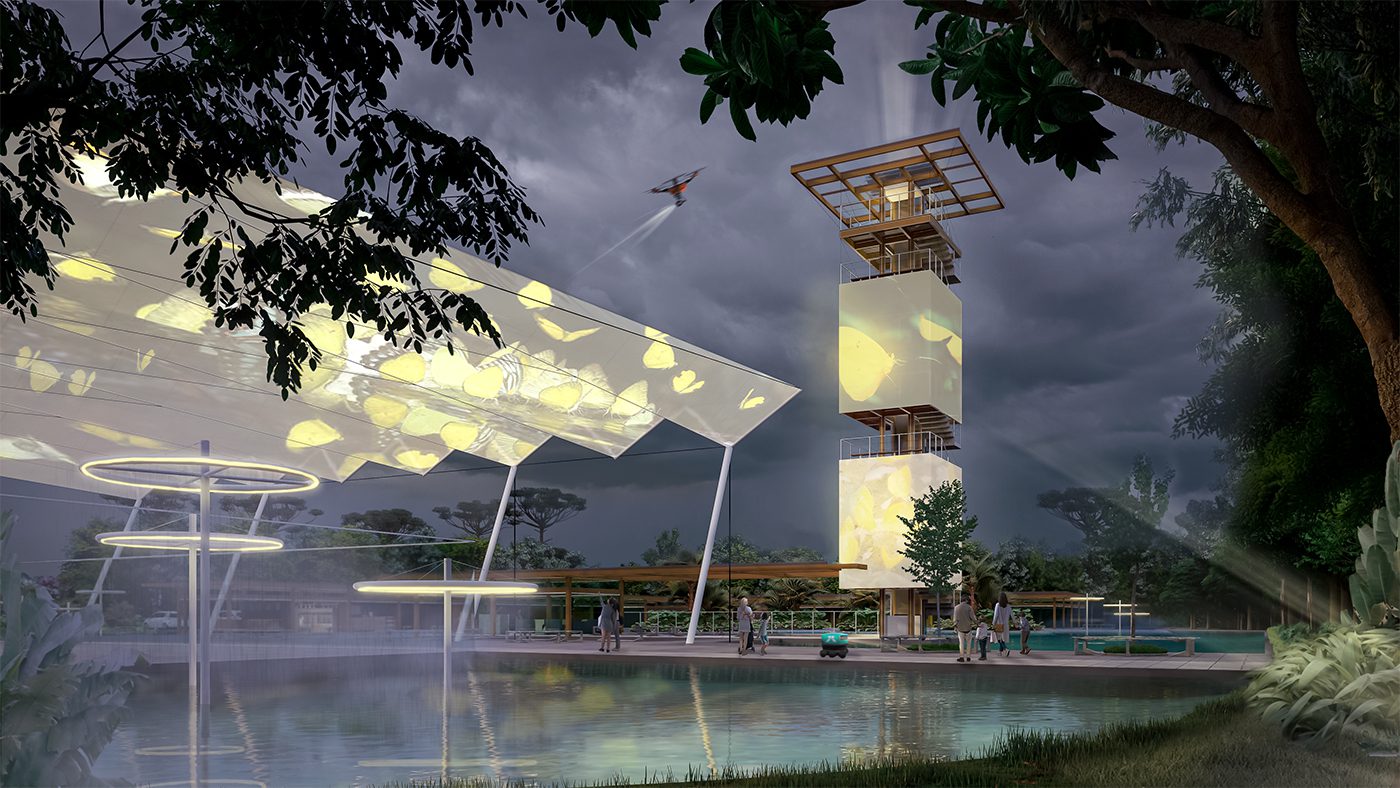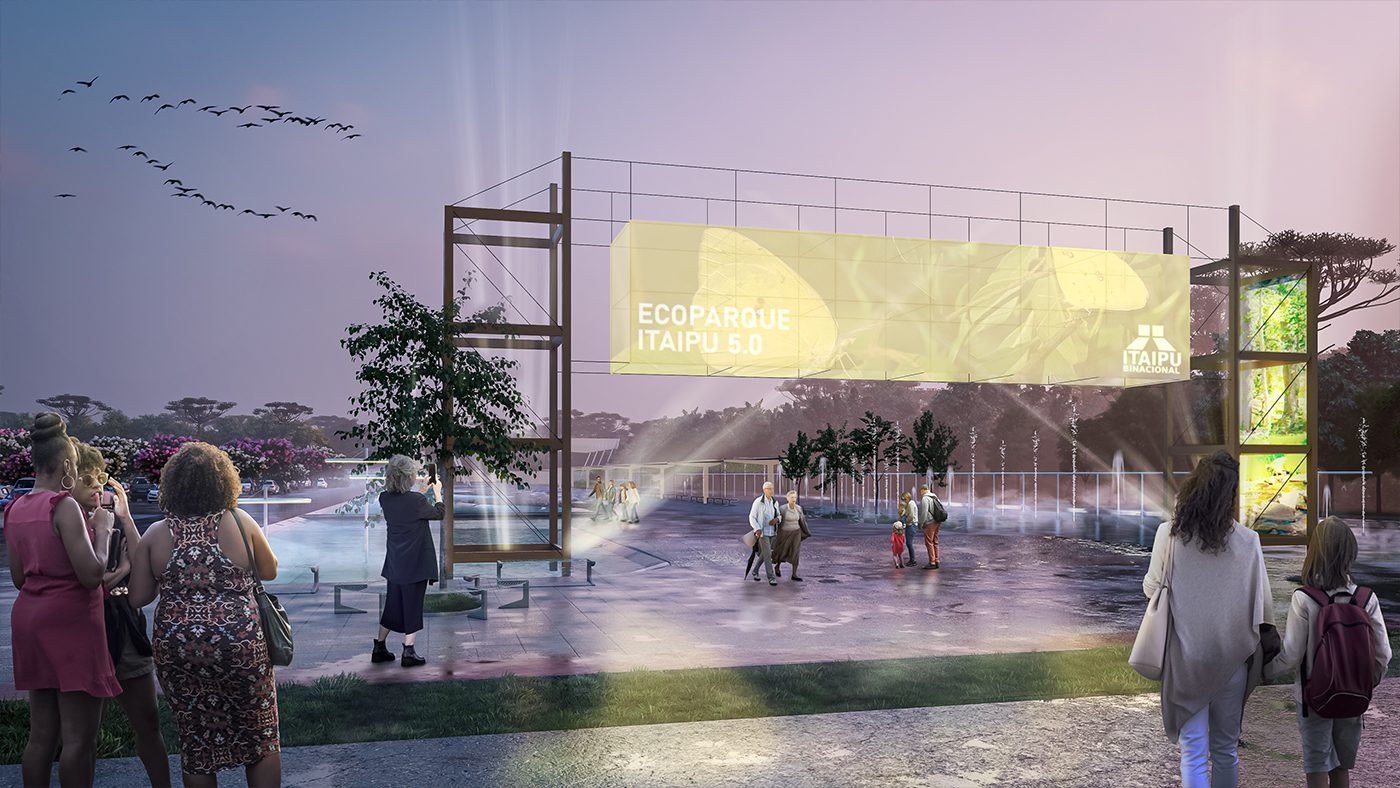Project implementation: Brazil
Project development: Brazil
The city of Foz do Iguaçu, established in 1914, bears the scars of Brazil's history in its urban fabric. The construction of the Itaipu hydroelectric plant left its mark on the territory, occupying an area larger than the city's current urban footprint. The land to be occupied by the Ecopark is part of this process of urban occupation and redefinition. It's an ongoing, tortuous process, but one that reveals a vision for the future that's sorely needed in the face of the environmental collapse we're already facing as a society.
Construction of the plant began in 1974, amid the military dictatorship. To minimize environmental impact, areas in the city were set aside for various purposes. The current site was formerly a nursery for reforestation around the dam. Although it seems speculative, if this area had not been set aside for this purpose, it would likely have been swallowed up by the city's expansion, as today, the perimeter of the site is already densely populated. This reveals a tortuous process of historical recycling: without Itaipu, there would be no flooding for the dam; without the dam, there would be no need for nurseries for new seedlings; without the need for reforestation, there would be no urban vegetation reserve, which now results in a new park for the city. As Eduardo Galeano stated over 50 years ago, "in the history of mankind, every act of destruction finds its response, sooner or later, in an act of creation" (Galeano, 1978: p. 396).
André Prevedello is an architect and researcher. He was a director of AP Arquitetos in 2010 (www.aparquitetos.com.br), with projects and awards in Brazil, South America, and Europe. He holds a bachelor's and master's degree from the Federal University of Paraná and a postgraduate degree in hybrid arts from the Federal University of Technology of Paraná. He is pursuing a doctoral research degree with a scholarship from the Lusófona University of Lisbon. He is a researcher for SOS Climate Waterfront H2020-MSCA-RISE-2018, under the European Union's Horizon 2022 program, with research conducted in Portugal, Greece, and Sweden. He is a professor of theory and history. He has won the IAB-PR 2021 and IAB-SC 2021 awards, BUILD – Sustainable Building Awards England, Best Spatial Architecture Design Studio, and the IAB MS 2023 Award. He also won first place in the Eco Parque Itaipu, first place in the Requalification of the Salão Nobre and UFCSPA Theater, first place in the Pelotas City Council, first place in the Colinas Cooperativa Cascavel, first place in the Salvador International Project Seminar Competition, and first place in Caixa Econômica – Solutions for low-cost housing, among others. He is a constant contributor to lectures, conferences, reviews, and exhibitions.
Tais Mendes is a geologist with a degree from the Federal University of Paraná. She is a project manager at AP Arquitetos. She has experience managing highly complex projects, having worked on hydroelectric projects in Brazil, Peru, and Guyana. At AP Arquitetos, she was responsible for managing several projects throughout Brazil, including the SESC Mogi das Cruzes Unit, the new headquarters of the São Paulo Military Police Battalion, the SESC Balneário Mato Grosso do Sul unit, the Federal University of Rio Grande do Sul (UFCSPA) Theater, and the new Pelotas City Hall, among others.




